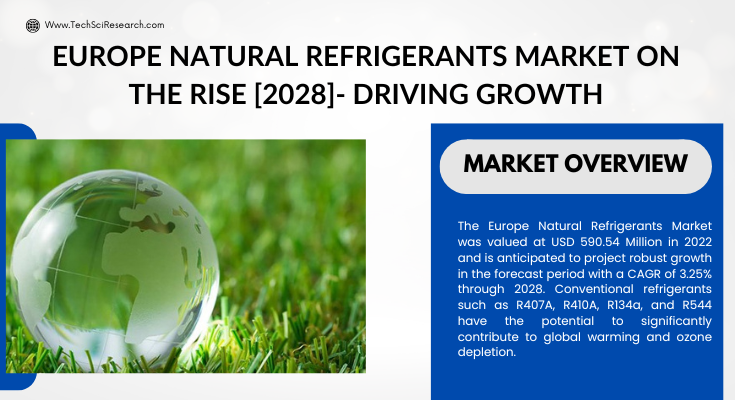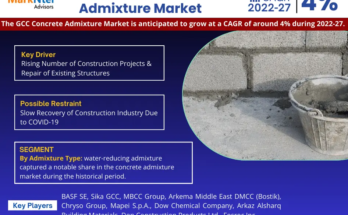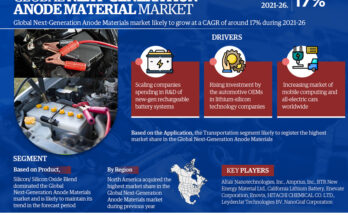According to TechSci Research report, “Europe Natural Refrigerants Market – By Region, Competition, Forecast and Opportunities, 2018-2028”, the Europe Natural Refrigerants Market Size is USD 590.54 million in 2022 and is anticipated to increase at a CAGR of 3.25% through 2028. Natural refrigerants are the product of a biochemical process that taps into resources from the natural environment.
These include prominent options frequently employed in HVAC/R (Heating, Ventilation, Air Conditioning, and Refrigeration) applications, such as carbon dioxide (CO2, R-744), hydrocarbons like propane (R-290), isobutene (R-600a), and propylene (R-1270), as well as ammonia (NH3, R-717). Additionally, alternatives like water (H2O, R-718) and air (R-729) fall under the category of natural refrigerants.
These natural options stand out as the primary solution for mitigating the environmental harm associated with synthetic refrigerants, mainly due to their minimal or non-existent Global Warming Potential (GWP) and complete lack of Ozone Depletion Potential (ODP). Given these compelling advantages, the demand for natural refrigerants is poised for substantial growth in the forthcoming years.
Furthermore, various manufacturers have significantly ramped up their investments in research and development to create new, environmentally friendly refrigerants that adhere to government-imposed standards. This development is expected to further fortify the market’s position during the forecast period.
Browse over XX market data Figures spread through XX Pages and an in-depth TOC on “Europe Natural Refrigerants Market” @ https://www.techsciresearch.com/report/europe-natural-refrigerants-market/17318.html
Moreover, the utilization of synthetic refrigerants such as hydrofluorocarbons (HFCs), hydrochlorofluorocarbons (HCFCs), and chlorofluorocarbons (CFCs) in the HVAC sector leads to the emission of harmful gases. These gases are major contributors to ozone layer depletion and the exacerbation of global environmental temperatures. The increase in Earth’s temperature, in turn, triggers a host of issues, including the melting of glaciers, resulting in rising sea levels and subsequent inundation of various regions. Additionally, it gives rise to incidents of forest fires and contributes to deforestation, both of which disrupt the natural climate cycle.
The Europe Natural Refrigerants Market is segmented into type, application, country distribution, and company.
Based on the category of type insights, the carbon dioxide segment is expected to register the highest growth of 3.69% during the forecast period 2024-2028. Carbon dioxide stands out as an environmentally friendly, non-toxic, and non-flammable natural refrigerant. With a Global Warming Potential (GWP) value of just 1, carbon dioxide serves as the standard against which the environmental impact of different refrigerants on global warming is measured. Given that carbon dioxide is a by-product of numerous production processes, it is easily obtainable for use as a refrigerant. This ready availability plays a significant role in driving the growth of the Europe Natural Refrigerants Market in the anticipated timeframe.
Based on the application, the industrial segment is expected to register the highest growth of 3.50% during the forecast period, 2024-2028. The industrial sector involves the use of refrigeration systems in vast industrial environments such as chemical manufacturing, pharmaceuticals, and food processing. Currently, carbon dioxide refrigeration technology is predominantly applied in three crucial domains: heat pumps, automotive air conditioning, and multi-stage refrigeration systems. Due to the environmentally friendly characteristics of carbon dioxide, efforts have been made to develop and manufacture carbon dioxide compressors for various industries. This advancement is anticipated to propel the growth of the Europe Natural Refrigerants Market in the projected period.
Based on country, Germany will witness the fastest growth during the forecast period, 2024-2028. As Germany, a leader in sustainable practices and environmental consciousness, has witnessed a significant surge in the demand for natural refrigerants. This growing demand is driven by several key factors that reflect the country’s commitment to reducing greenhouse gas emissions and promoting energy-efficient solutions. One of the primary drivers is stringent regulatory initiatives aimed at curbing the use of synthetic refrigerants with high global warming potential (GWP). Germany aligns with international agreements like the Kigali Amendment to the Montreal Protocol, which aims to phase out high-GWP refrigerants, creating a favorable environment for the adoption of natural refrigerants.
Moreover, energy efficiency has become a top priority in Germany, and natural refrigerants, known for their superior thermodynamic properties, offer energy-efficient cooling solutions. Industries, commercial entities, and even residential consumers are increasingly transitioning to natural refrigerant-based systems to reduce operational costs and environmental impact. In the commercial sector, supermarkets, restaurants, and businesses are embracing natural refrigerants, particularly carbon dioxide (CO2), due to their exceptional energy efficiency and lower environmental footprint. In the residential sector, hydrocarbons like propane (R-290) are gaining popularity in small-scale air conditioning and domestic refrigeration, further driving the demand for natural refrigerants.
Major companies operating in Europe Natural Refrigerants Market are:
- Linde Plc.
- Evonik Industries AG
- Tazzetti SPA
- Air Liquide S.A.
- TEGA Technische Gase und Gasetechnik GmbH
Download Free Sample Report @ https://www.techsciresearch.com/sample-report.aspx?cid=17318
Customers can also request for 10% free customization on this report.
“Growing awareness of environmental concerns, including climate change and ozone depletion, has been a driving force behind the rising demand for natural refrigerants. Both businesses and consumers have been actively seeking greener and more eco-friendly cooling and refrigeration solutions. Additionally, significant research and development initiatives have been underway to enhance the efficiency and suitability of systems based on natural refrigerants. These efforts encompass the development of novel components, compressors, and system designs specifically tailored to the requirements of natural refrigerants, thereby contributing to the advancement of sustainable cooling technologies creates a lucrative opportunity in the market growth,” said Mr. Karan Chechi, Research Director with TechSci Research, a research-based management consulting firm.
“Europe Natural Refrigerants Market, By Type (Carbon Dioxide, Ammonia, Hydrocarbons, Others), By Application (Industrial, Commercial, Domestic), By Country, By Competition Forecast & Opportunities, 2018-2028F”, has evaluated the future growth potential of Europe Natural Refrigerants Market and provides statistics & information on market size, structure, and future market growth. The report intends to provide cutting-edge market intelligence and help decision-makers take sound investment decisions. Besides, the report also identifies and analyzes the emerging trends along with essential drivers, challenges, and opportunities in Europe Natural Refrigerants Market.
You may also read:
United States Hydroxyapatite Market – Current Analysis and Forecast [2028]
United States Hot Melt Adhesives Market – Competitive Landscape and Innovation
Asia-Pacific Agrochemical Intermediates Market [2028]- Exploring Robust Growth & Forecast
Acoustic Materials Market – Rising Demand and Growth Trends
Europe Green Methanol Market Set for XX.XX% CAGR Through 2028- Forecasted Growth
Table of Content-Europe Natural Refrigerants Market
- Product Overview
1.1. Market Definition
1.2. Scope of the Market
1.2.1. Markets Covered
1.2.2. Years Considered for Study
1.2.3. Key Market Segmentations
- Research Methodology
2.1. Objective of the Study
2.2. Baseline Methodology
2.3. Key Industry Partners
2.4. Major Association and Secondary Sources
2.5. Forecasting Methodology
2.6. Data Triangulation & Validation
2.7. Assumptions and Limitations
- Executive Summary
3.1. Overview of the Market
3.2. Overview of Key Market Segmentations
3.3. Overview of Key Market Players
3.4. Overview of Key Regions
3.5. Overview of Market Drivers, Challenges, Trends
- Voice of Customer
- Impact of COVID-19 of Europe Natural Refrigerants Market
- Europe Natural Refrigerants Market Outlook
6.1. Market Size & Forecast
6.1.1. By Value & Volume
6.2. Market Share & Forecast
6.2.1. By Type (Carbon Dioxide, Ammonia, Hydrocarbons, Others)
6.2.2. By Application (Industrial, Commercial, Domestic)
6.2.3. By Country (Germany, Italy, France, United Kingdom, Spain, Russia, Netherlands, Switzerland, Sweden, Denmark)
6.2.4. By Company (2022)
6.3. Market Map
6.3.1. By Type
6.3.2. By Application
6.3.3. By Country



